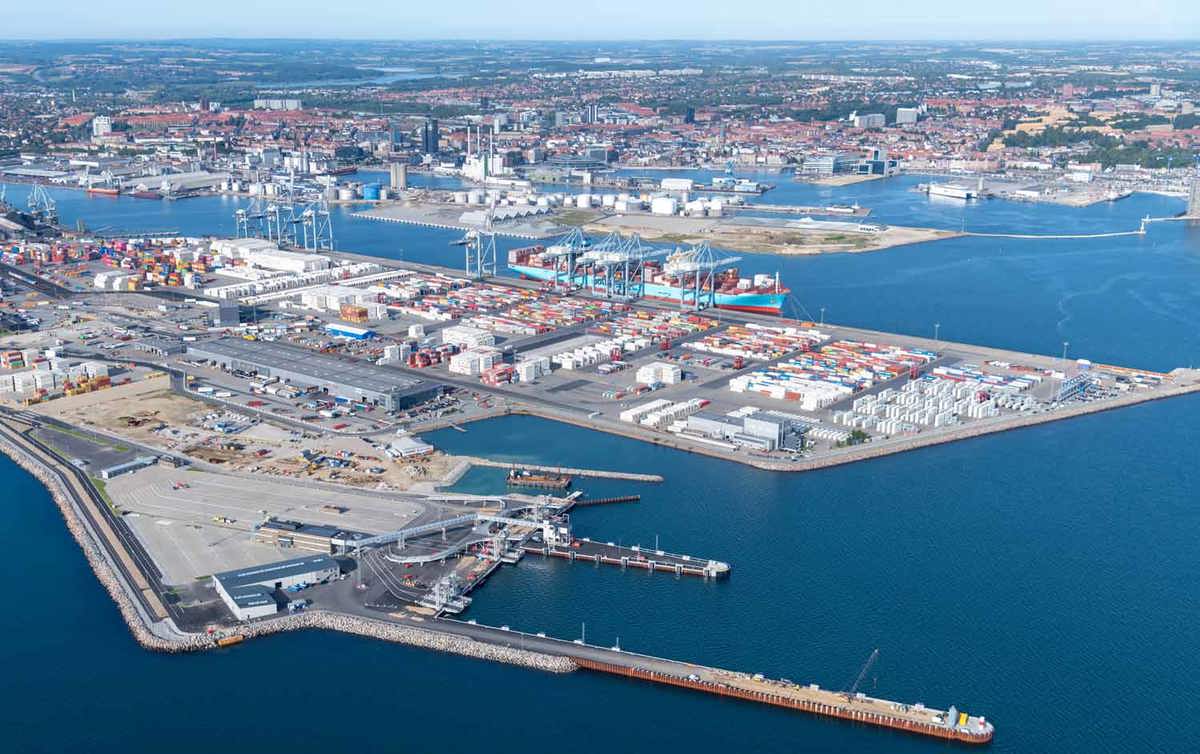Danish shipping industry calls for more green fuel investments
Denmark-based shipping companies are ready to invest in low-emission ships, but lack the green fuels to power them, according to Danish Shipping, a trade body representing Danish shipowners.
 PHOTO: Aerial view of Port of Aarhus in Denmark. APM Terminals
PHOTO: Aerial view of Port of Aarhus in Denmark. APM Terminals
The current funding available is “insufficient” to scale up existing technologies, while the high cost of green fuels remains a major roadblock to their wider adoption, Danish Shipping noted in a recent report.
“Today, sailing on green fuels is three to five times more expensive than using fossil fuels. This means that the biggest barrier to green shipping is financial,” it said.
The non-profit argued that current funding is insufficient to support shipping’s green transition and that Denmark should use its EU Presidency to push for increased investment in green fuel production across the EU.
Danish shipowners will contribute approximately 3.8 billion Danish Krone ($555 million) in revenue from shipping’s inclusion in the EU Emissions Trading System (ETS), according to estimates from Danish Shipping. It suggests that a significant portion of this revenue should be directed toward scaling up green fuel production.
Beyond ETS-generated revenue, the EU can provide additional financial incentives through the EU Innovation Fund and the EU Hydrogen Bank, it said. On a national level, the Danish government can leverage these schemes to allocate domestic funding to accelerate the adoption of low- and zero-emission marine fuels.
“Denmark should advocate for earmarking funds within the EU for the shipping sector and allocating additional financial resources to tenders dedicated to the production of green fuels for shipping under the Hydrogen Bank,” the report added.
It also emphasised on increasing funding allocation in 2026, when 100% of shipping emissions will be covered under the EU ETS, as well as when FuelEU Maritime’s regulatory targets become stricter.
To help close the price gap between green fuel producers and off-takers, Danish Shipping recommended that the Danish government should adopt double-sided auctions as a national subsidy mechanism. A double-sided auction is a bidding process where both buyers and sellers submit bids and offers directly to a central auctioneer. The price difference between the bids submitted by buyers and sellers can then be compensated through a government-backed support scheme. This approach is already being used in the green hydrogen sector through Germany’s H2Global initiative.
In addition, Danish Shipping called for dedicated funding within the Danish Energy Agency to focus specifically on maritime initiatives. The report stressed that without stronger financial incentives and government-backed support, the green fuel transition in shipping could stall, despite industry willingness to invest in cleaner vessels.
By Konica Bhatt
Please get in touch with comments or additional info to news@engine.online






